By Jeremy Menzies
Tucked away on the northeast edge of San Francisco is our transit system's oldest motor bus yard. Small but mighty, Kirkland Division has been home to some of Muni’s fleet of motor buses for nearly 75 years.
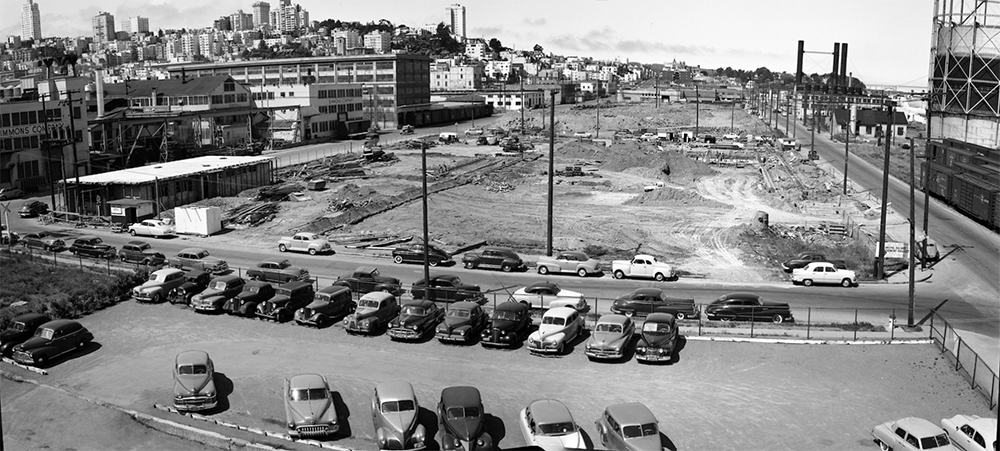
 These two panoramic photos show Kirkland Division during and after construction. Top photo taken July 20, 1950, bottom September 14, 1950.
These two panoramic photos show Kirkland Division during and after construction. Top photo taken July 20, 1950, bottom September 14, 1950.
Kirkland was built in 1950 amidst freight rail yards and factories. Its namesake comes from a former Southern Pacific Railroad official, William B. Kirkland, who worked in a rail yard on the site during World War II. Today, the division is nestled among Pier 39 attractions, parking garages and hotels.
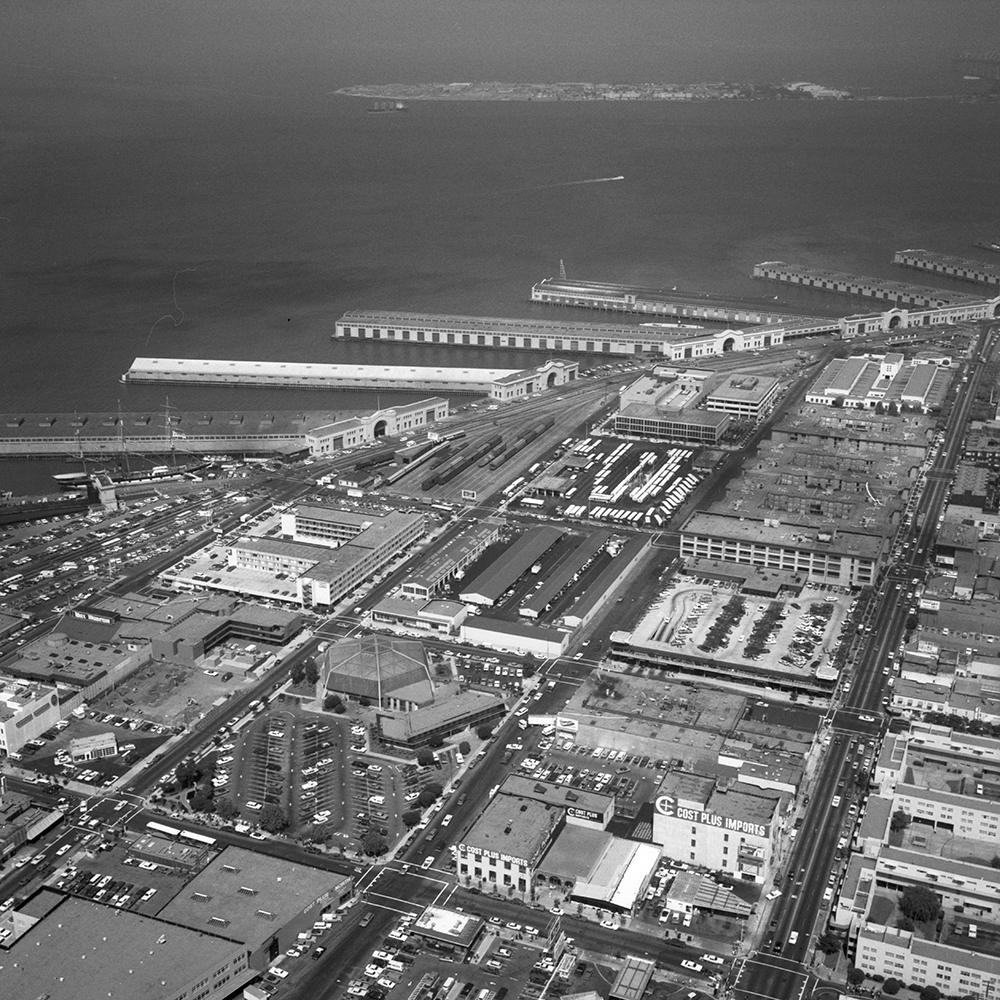 An aerial view from 1972 shows Kirkland in the upper center of the photo. Industrial uses in the area have begun to give way to residential and tourist areas.
An aerial view from 1972 shows Kirkland in the upper center of the photo. Industrial uses in the area have begun to give way to residential and tourist areas.
The yard was primarily designed as an operations facility. It has shops and equipment only for routine maintenance and light repairs. With a capacity of around 125 buses, it’s nearly half the size of the SFMTA’s largest yard, Woods Division.
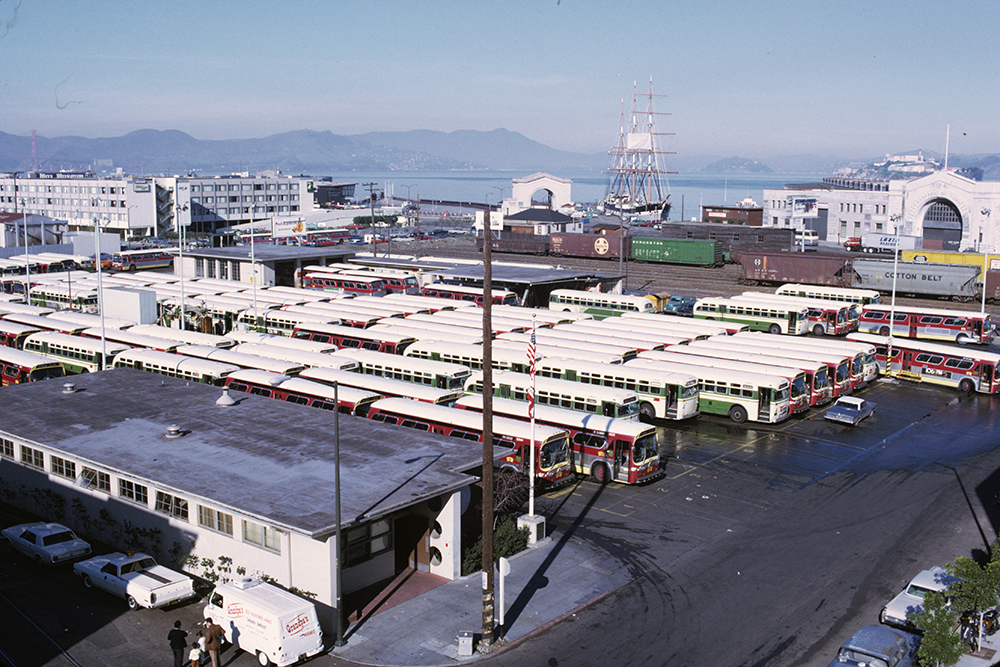 This color photo from 1971 shows a yard full of old and new Muni buses. To the north lies the remnants of a once massive freight rail yard.
This color photo from 1971 shows a yard full of old and new Muni buses. To the north lies the remnants of a once massive freight rail yard.
Today, some of the system’s longer cross-town routes run out of Kirkland. Operations and maintenance staff keep the 12, 19, 28, 28R, 43, and 21 (weekend only) on the road.
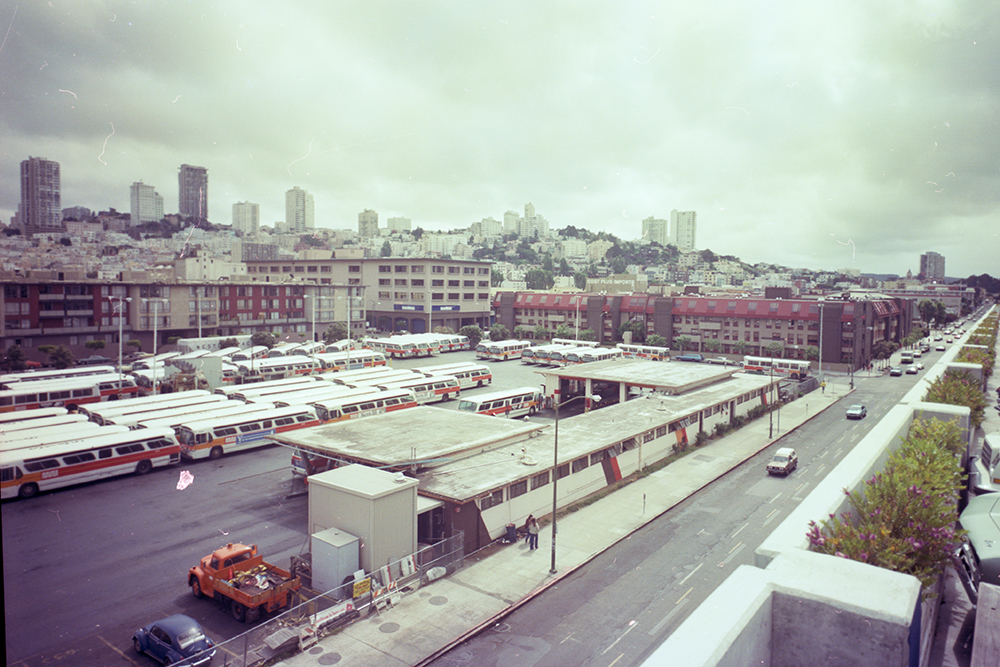 By the time this 1980 photo was taken, the rail yard north of Kirkland was replaced by a parking garage for Pier 39 attractions.
By the time this 1980 photo was taken, the rail yard north of Kirkland was replaced by a parking garage for Pier 39 attractions.
Kirkland could play a key role in our work to electrify our fleet. The yard is being studied for reconstruction as a potential battery-electric bus facility. Proposals for this project include building an overhead grid system that would allow buses to charge while in the yard. You can learn more on our Kirkland Yard Electrification Project webpage (SFMTA.com/KirklandYard).
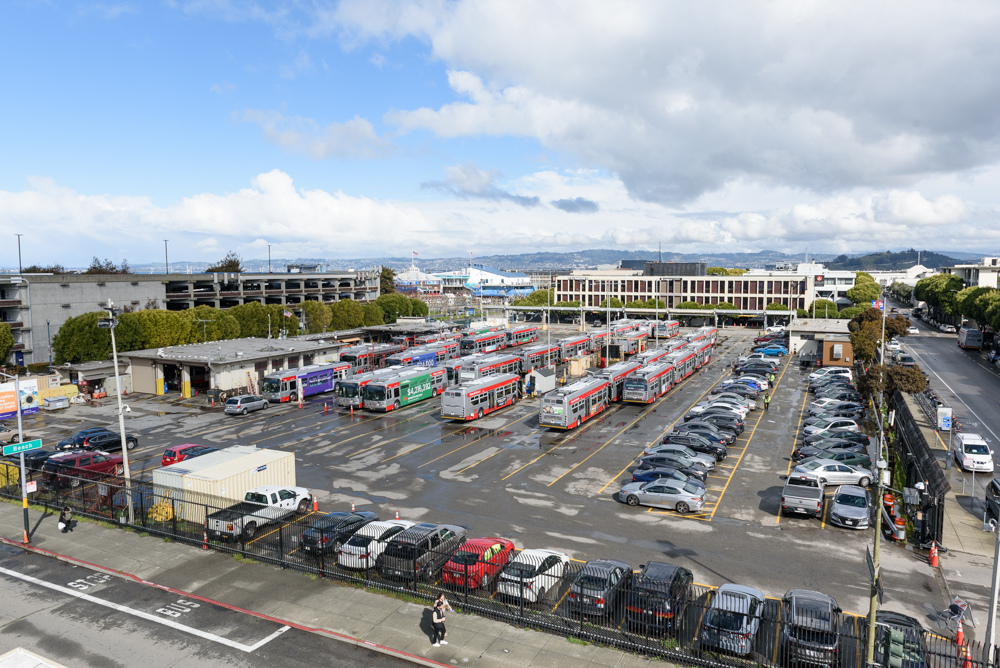 This 2023 view shows a much-changed neighborhood but a relatively unchanged Kirkland Yard.
This 2023 view shows a much-changed neighborhood but a relatively unchanged Kirkland Yard.
Kirkland Yard was a crucial part of the Muni system when it was built in 1950. It remains one today as we look toward the future of transportation in San Francisco.
Published March 22, 2024 at 12:10AM
https://ift.tt/59UlXgJ
Comments
Post a Comment